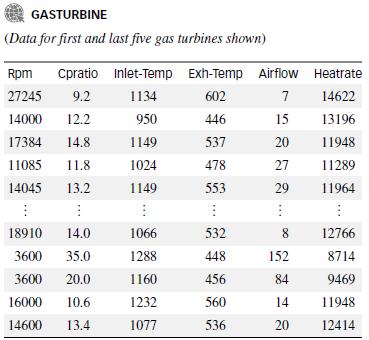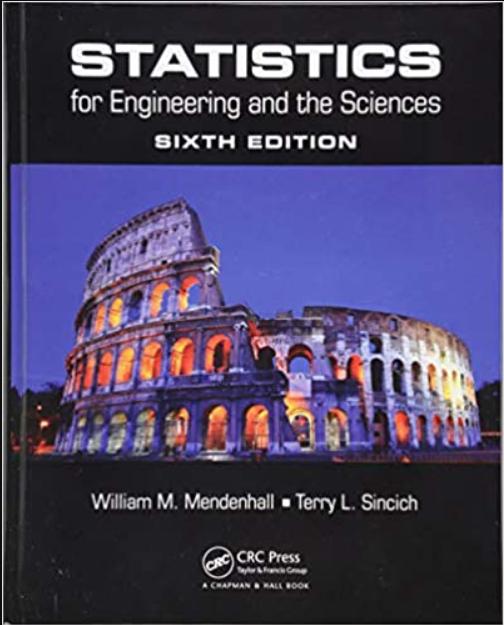Refer to the Journal of Engineering for Gas Turbines and Power (Jan. 2005) study of a high-pressure
Question:
Refer to the Journal of Engineering for Gas Turbines and Power (Jan. 2005) study of a high-pressure inlet fogging method for a gas turbine engine, Exercise 8.29 (p. 392). Recall that the heat rate (kilojoules per kilowatt per hour) was measured for each in a sample of 67 gas turbines augmented with high-pressure inlet fogging. In addition, several other variables were measured, including cycle speed (revolutions per minute), inlet temperature (C°), exhaust gas temperature (C°), cycle pressure ratio, and air mass flow rate (kilograms per second). The full data set is saved in the GASTURBINE file.
a. Write a first-order model for heat rate (y) as a function of speed, inlet temperature, exhaust temperature, cycle pressure ratio, and air flow rate.
b. Fit the model to the data using the method of least squares.
c. Give practical interpretations of the β estimates.
d. Find the model standard deviation, s, and interpret its value.

Data from Exercise 8.29
During periods of high electricity demand, especially during the hot summer months, the power output from a gas turbine engine can drop dramatically. One way to counter this drop in power is by cooling the inlet air to the gas turbine. An increasingly popular cooling method uses high-pressure inlet fogging. The performance of a sample of 67 gas turbines augmented with high-pressure inlet fogging was investigated in the Journal of Engineering for Gas Turbines and Power (Jan. 2005). One measure of performance is heat rate (kilojoules per kilowatt per hour). Heat rates for the 67 gas turbines are listed in the table on the bottom of page. Suppose that a standard gas turbine has, on average, a heat rate of 10,000 kJ/kWh. Conduct a test to determine if the mean heat rate of gas turbines augmented with high-pressure inlet fogging exceeds 10,000 kJ/kWh. Use α = .05.
Step by Step Answer:

Statistics For Engineering And The Sciences
ISBN: 9781498728850
6th Edition
Authors: William M. Mendenhall, Terry L. Sincich





